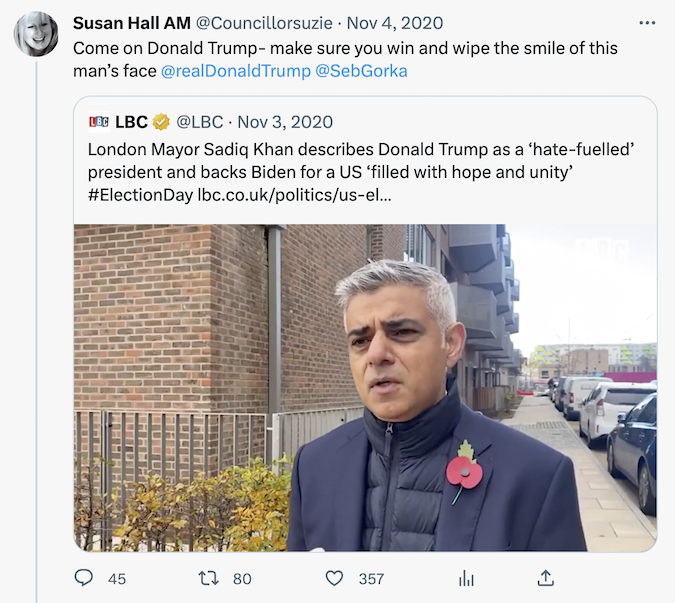Keir Starmer’s response to Labour falling short of winning the Uxbridge & South Ruislip by-election was infuriating and depressing. Rather than recognise that his party had taken a large step towards gaining a historically stubbornly Conservative seat despite facing a single-issue scare story candidate who mobilised just enough core support in a low turnout contest to cling on, the Labour leader and his deputy Angela Rayner decided to use this very local disappointment as an opportunity to give London’s double election-winning Labour Mayor a national telling-off.
Their public interpretation of the result as purely a repudiation of Sadiq Khan’s plan – that of a Labour Mayor, not a Labour Party in opposition – to further expand London’s ultra-low emission zone (ULEZ) to the whole of Greater London has also raised concerns about what a Labour government would be like, including suspicions that Starmer is backing ever further away from his green policy agenda and Jack Brown’s fear that he is going cold on devolution.
You have to wonder, too, whether Starmer has been tactically shrewd. He has excited political journalists, always thirsty for splits, by creating a public rift with Khan. Today’s headlines are full of it. Surely, this could have been avoided. Would it have been so hard to have said that gaining Uxbridge was never going to be easy, unusual circumstances applied, the ULEZ policy is the Mayor’s for the whole of Greater London, it will directly affect only a small minority of motorists, and hostility to it will fade – all of which would have been true.
Instead, he has flapped, flip-flopped – what happened to the it’s-a legal-requirement line he took during the campaign? – and hacked off the wrong sorts of people. It’s his job to alienate Corbynites, that bovine barrier to a Labour government. It’s not so clever to pick fights with soft left progressives who’ve twice attracted more than a million votes.
Starmer has been rightly assiduous in avoiding handing his Conservative opponents ammunition to fire at him. And maybe he thought that by rebuking Khan he would reassure the voters he most needs in the seats he most needs to win. But if so, any advantage he might have secured by doing so looks outweighed by the furore he’s inflamed. He has set running a media hare that could keep going until next May, with Conservatives cheering it on.
So much for making a decent advance look like a bad defeat. What does Starmer’s stance post-Uxbridge tell us about his attitude to London as a city? Jack’s devolution point is well made: the MP for Holborn and St Pancras has moved a long way since the days when he talked about “a federal UK” and handing regional authorities more power.
Labour’s report about constitutional change, published in December, recommended “empowering Mayors”, yet recycled a string of tired, missing-the-point northern grievance tropes about London getting more than its fair share. Now, the one-time advocate of Whitehall giving more power to Mayors has turned on the Mayor of the UK capital for his use of the limited powers he has.
London has endured four years of Conservative government micromanagement from on high – an onslaught of spite, stupidity and “levelling up” posturing that has harmed the city whose economy the whole country depends on. We now have to contemplate the possibility that a Prime Minister Starmer would be just as bad.
Again, in most respects, the Labour leader’s overall caution and insistence on message discipline make sense. To adapt two old adages, why interrupt your enemy when it is destroying itself, and why risk dropping a Ming vase as you nurse it across a slippery floor?
But as well as abandoning the first one, Starmer’s centre stage panic over Uxbridge hints at a broader anxiety about being linked by the Tories and in the public mind with a London of the populist imagination they and he know some voters dislike: that fantasy London simultaneously composed of “metropolitan elite” professionals out of touch with normal life and rampantly “lawless” un-Britishness.
Rishi Sunak’s “north London lawyer” jibes may be preposterous coming from a Kensington mansion-dwelling multi-millionaire, but he uses them for a reason. You can see how he might relish painting Starmer as a “soft on ULEZ” down south trendy in the eyes of car-dependent residents of the red wall.
Polling tells us that many voters don’t know what Starmer stands for and find him dull, but that might not matter if the Tories keep on sinking all by themselves. Should the Opposition leader decide it would help him to stir a bit of breast-beating, patriotic excitement, he has the option of joining with Mayor Khan to make Britain’s already world-beating capital even more of a trailblazer, enhancing its environment and boosting its growth by giving City Hall greater powers. The golden goose could lay even more golden eggs for the whole country to share.
It doesn’t look as if that’s going to happen. We might have to accept that, just like the Conservatives, Keir Starmer doesn’t want to be London’s friend.
Twitter: Dave Hill and On London. If you value On London and its writers, become a supporter or a paid subscriber to Dave’s Substack.










